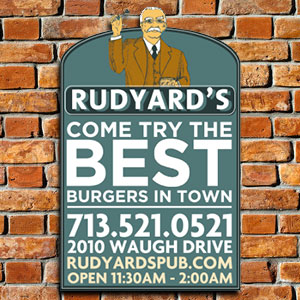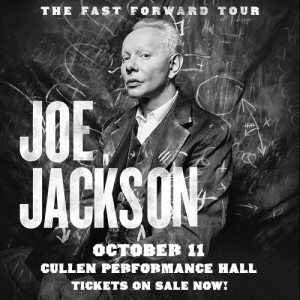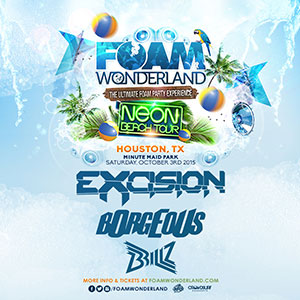Stand Up & Deliver: A Lion Or A Sheep

Photo: Richard Flood
In the comedy world, there are misnomers that plague the scenes in which it operates more than you’d think. Many audience members and fans don’t know about things like “black rooms,” or “The Chitlin Circuit,” just like they don’t know how many shows they’ve seen that were 100% comic booked and promoted. One of the comics in Houston who’s known for booking and promoting his own shows, is Rich Williams. Rich gets flack for “bringer” shows (where the comic is required to “bring” a certain number of audience members or drinks sold) and for how he books, yet the bulk of his shows are sellouts. FPH took a moment to talk with Rich about some of the misconceptions about him, as well as the world in which he operates.
FPH: You hustle more than anyone I’ve seen in my life. You seem to sell out the bulk of your shows, and I know you sell the bulk of those tickets face to face. What makes you hustle so hard and what’s the secret behind moving so many tickets?
RICH WILLIAMS: Actually, I divide the promotional burden between myself and the other comics on the show. What motivates me is that I realized early on that first off, you can’t live off a host level or even feature level comic’s salary. Clubs pay you $50 a weekend to host, and $200 to feature. Secondly, I learned fast that the show runners make the money. The first show I produced, I walked away with $1,000 after paying the comics. Why should I accept $100 to do a show when I can make 10 times that if I produce it myself? And finally, comics at the top of the game build a brand that sells itself. They do not rely on the club to promote them. While most comics are waiting for the phone to ring or begging for gigs, I can work whenever I want to.
FPH: Steve Harvey said, ”Comedy is the one profession that’s non-transferrable. You can become a better actor through classes but you can’t become a better comic the same way.” Do you feel like you can echo that sentiment, that you either have it or you don’t?
RICH WILLIAMS: I agree. You can teach structure and professionalism, but people are either funny or not funny — you can’t teach that. That being said, I’ve seen comics, including myself, become funnier over time, mainly because they learn to cut away the fluff and get to the joke faster. Also, certain people work better in different mediums. Michael Richards is an hilarious comedic actor, but his standup is garbage and we all saw the result. Ralphie May is one of the best of our generation, but I can’t see him doing sketches.
FPH: I think that the bulk of the public doesn’t know what a “bringer show” is. And I know, a whole bunch of comics in this town are against doing those types of shows where they have to sell their own tickets, and sometimes you’ll do a show where the act has to sell their tickets. Explain why a comic should do at least one show where they have to sell their own tickets, and why you do it that way.
RICH WILLIAMS: A true bringer show emphasizes sales over talent. I never do that. If you don’t believe that the comics on the ticket are as funny or funnier than you, you shouldn’t do that show. Your fans will not be pleased. That being said, ultimately, my jokes are not funny in a vacuum. It is in my best interest to acquire as many fans as possible at every performance. When you sell tickets, you begin to understand the intrinsic value of the skillset you bring to the table.
You also educate your fans. Whereas before they could see you for free at open mic, now they have to attach a value to your service. When a comic tells me they don’t want to sell, it’s because either they have a day job and they don’t need to make money off the show. They’ve tapped out their network and aren’t growing their fan base. Or, they don’t think they are funny enough to be paid, or they’re lazy, or they don’t need to sell tickets to get gigs. If they’re at the level that doesn’t have to sell tickets, then they are probably an established brand that sells itself. Whatever the case, unless it’s a corporate event, the more you can show to promoters that you are a draw, the more you can command from the marketplace.
FPH: What’s “The Chitlin Circuit,” and what’s your involvement, if any, with those rooms and booking shows?
RICH WILLIAMS: I’ve heard of the “Chitlin Circuit,” which Ebony Magazine apparently renamed “The Urban Theater Circuit,” which they did to make describing where Tyler Perry initially performed his plays more politically correct. There’s a list of those theaters on Wikipedia, though the only one I knew of was The Howard Theater, but that’s because I once opened for Joe Claire there three years ago. Because of how ethnically diverse Houston is, comics here get to perform in front of diverse crowds. I haven’t really put on any black comics from The Chitlin Circuit to a more mainstream audience. In fact, the black comics I’ve worked with like Ali Siddiq, Billy D. Washington, and Thea Vidale were already mainstream before we worked together. They’d already been on Comedy Central, NBC, MTV, and Showtime; and Thea had a show on ABC back in the day. I think it’s better to say that I’ve put more mainstream acts like Andy Huggins and The Whiskey Brothers in front of slightly more ethnic crowds than they’re used to playing in front of. But then again, that’s nothing that Houston comics aren’t already used to. I tell any comic starting out to play in as many rooms that are diverse as possible, so they don’t limit their income potential. The aforementioned pros have already followed that paradigm.
FPH: Houston’s comedy scene has a lot of smack talking, yet it doesn’t really seem to affect you at all. Do you ever find yourself getting into it with other comics?
RICH WILLIAMS: Talking smack is part of the game. If they aren’t saying shit about you, you don’t matter. I got into it online with another comic, and the guy who brought me in to produce Hard Rock, Steve Hofstetter, saw the exchange and said that I was being unprofessional. Then he told me something I will never forget. He said that, “Lions do not concern themselves with the opinions of sheep. Which are you?”
FPH: What’s your definition of a successful comedy career?
RICH WILLIAMS: “Comedy” is so broad. I personally like the Kevin Hart model. Various successful movie and TV projects, and a strong online presence that all feed into successively larger tours. Most importantly, balancing that with a healthy private life where I’m staying healthy and developing spiritually. That’s a successful career.
A young comic can definitely learn a lot from Williams about how to get paid, how to promote, and how to grow a fanbase. While he attempts to balance a healthy private life while building his brand, you can catch Rich Williams when he hosts the Jurassic Park Quote Along at Alamo Drafthouse in Mason Park on September 26th, when he headlines the Cock & Bull Pub in Clear Lake on September 29th; and the Houston Whatever Fest on November 21 & 22.














